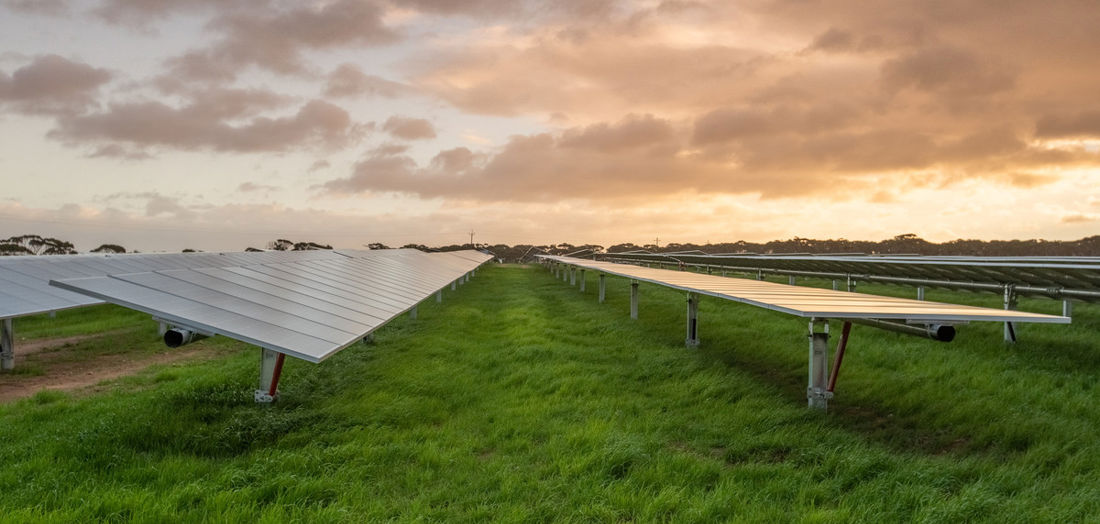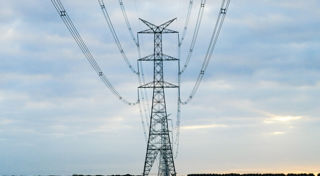CEFC investment targets renewables sweet spot for community and commercial energy users

17 December 2019
A new investment push from the CEFC and specialist investor Infradebt into smaller utility-scale renewable projects aims to benefit regional communities and industrial and commercial energy users.
The CEFC has committed up to $50 million* in debt finance to Infradebt to invest in greenfield renewable projects which generate less than 25MW of energy.
These smaller-scale developments are ideally suited to regional communities, can be constructed close to demand and grid connections, and are also suitable for industrial and commercial sites. They have struggled to secure institutional investment compared with larger-scale projects, which can deliver greater economies of scale.
CEFC CEO Ian Learmonth said: “Australia is a world leader in financing rooftop solar PV, as well as very large-scale solar developments, of 50MW or more. Projects of 25MW or less can also play a critical role in our clean energy transition.
“These developments require less land, meaning they can be built closer to regional communities to meet local energy demand. They can also be more easily integrated into the grid, drawing on existing infrastructure to deliver secure energy supplies.
“Projects of this scale are also attracting increasing interest from industrial and commercial energy users, who have the space and the energy demand to warrant investment in their own energy supply.”
Through its new mandate with Infradebt, the CEFC will invest alongside the Infradebt Ethical Fund (IEF), an ethically-screened infrastructure debt fund that finances Australian infrastructure projects with a focus on renewable energy and social infrastructure.
The CEFC commitment will increase Infradebt’s committed discretionary capital by 50 per cent, to about $150 million, with the potential to finance a total of more than 100MW in new clean energy developments.
The finance will help close an investment gap in the renewable energy sector for smaller utility-scale projects valued between $10 million and $50 million. Such projects can struggle to raise debt finance because the minimum loan requirements of most institutional financiers are better suited to larger projects.
Construction has already begun on the first two projects to be financed under the new mandate, for 5MW solar farms at Trundle Hill and Peak Hill in NSW. When operational, each farm is expected to generate 28,000 MWh of energy a year, enough to power 4,000 homes. Infradebt Chief Executive Officer Alexander Austin said the IEF invested to make a sustainable difference.
“Our aim is to give superannuation funds and other long-term investors the opportunity to make a positive social and environmental impact at the same time as they enhance returns from the defensive part of their portfolio,” Mr Austin said.
“We know the renewable market and we work with projects that are usually too small to obtain finance from traditional banks. That experience and point of difference has helped deliver solid returns in the past two years.
“The CEFC investment will help us continue that work and strengthen our focus on an under-utilised segment of the renewable energy market.”
The IEF has a portfolio of 22 projects, including the 20MW Chinchilla Solar Farm and the 34.5MW Brigalow Solar Farm in Queensland, the 20MW Swan Hill Solar Farm in Victoria and two 5MW projects in South Australia.
The IEF has also financed solar projects that provide power to Alice Springs and the Voyages resort at Uluru, as well as microgrids meeting up to 80 per cent of the daytime energy needs of the remote Northern Territory communities of Lake Nash, Ti Tree and Kalkarindiji.
Mr Learmonth added: “This commitment with Infradebt will extend the benefits of CEFC finance to a previously untapped segment of the market, closing a persistent investment gap.
“CEFC finance has helped build a thriving clean energy sector in Australia, through investments in large-scale renewables, as well as rooftop and small-scale solar projects through our aggregation finance programs.
“Working with Infradebt is an effective and efficient way of reaching projects in between these, in terms of size and value, creating exciting opportunities for regional communities and businesses to further benefit from low cost low emissions renewable energy.”
*The CEFC increased its commitment to $150 million in 2023.
About Infradebt
Infradebt is a boutique infrastructure fund manager that works with investors to deliver fixed income products aligned with fixed income and portfolio objectives. It undertakes secured lending against Australian projects in the renewable energy, social infrastructure and property sectors. It aims to deliver a transparent investment, where investors and their members can see where their capital is deployed, as well as the environmental and/or societal benefits delivered by that capital.
Media release, 2019




